![]()
» Anti-Iranian Policies in Washington
The editorial of Shargh daily sheds light on the anti-Iranian policy that is being shaped in Washington.
According to the editorial, there have been several unprecedented changes in the U.S. policymaking since Donald Trump took office, which will have direct or indirect impacts on Washington’s decisions regarding Iran. In past few decades, there have been no administrations in White House with so many high-ranking officials in key positions: General Mattis, head of Pentagon, General McMaster, head of the U.S. National Security Council, and John Kelly, White House Chief of Staff.
The editorial adds: In the past, these 3 key positions were taken by civilians. Moreover, after the Iranian revolution, all these generals have had the experience of being in charge of positions in Iraq, Afghanistan, and Lebanon, and have had bitter experiences from Iran. On the other hand, the U.S. State Department and its senior diplomats have been unprecedentedly marginalized. As a result, experienced diplomats have minimal role and influence in the U.S. current decision-making process.
The editorial then focuses on Trump’s daughter and her husband. The role of Ivanka Trump and Jared Kushner in decision-making and White House, given their zero diplomatic and political experience, is unprecedented and has made angry the generals residing in White House and Pentagon, as well as the U.S. diplomatic system.
The editorial continues that these changes have created a confusion in the process of decision-making about important foreign policies and the U.S. national security, thus creating a golden opportunity for lobbies to influence this process.
In conclusion, the editorial underscores Trump’s being unique in the history of U.S. presidents. He is completely unpredictable, and the process of his decision-making has disturbed the majority of politicians from both parties, to the extent that Bob Corker, Republican Senator and head of the U.S. Senate Foreign Policy Committee, said Trump’s policies might push the U.S. towards World War III.
An editorial in “Shargh” daily on November 29, 2017
» Rouhani should Differentiate Lecture from Report
This editorial deals with Hassan Rouhani’s report of his first 100 days in office which is to be presented on Iranian state TV.
The editorialist expects President Rouhani to present mostly economic issues in his 100-day report, including skyrocketing prices, continued unemployment, and evaluation of his administration regarding the recent earthquake in Kermanshah province. Rouhani, like his predecessors, will defend his work while giving sweet promises for Iran’s future—promises which have no specific deadlines.
The editorialist continues that none of Iran’s presidents have ever talked about their administrations’ inadequacies or failures. In fact, Iranian authorities do not like to talk about what they have not achieved. Therefore, people are supposed to evaluate a government merely based on its promises.
What people want to know, however, is an answer to the following questions: Why was the issue of citizens’ rights forgotten after Rouhani’s presidential campaign? Why is the budget for health insurance decreasing day by day? Why was a government-drafted media regulation bill which was against freedom of expression written? Why is Iran still on the blacklist of money laundering countries?
Instead of some achievement propaganda, Rouhani needs to address the aforementioned topics in his 100-day-in-office report, concludes the editorialist.
An editorial in “Jahane Sanat” on November 28, 2017
» Conflict between Doctor and General
Editorial of Ebtekar newspaper deals with the conflict of former and current mayors of Tehran –one, former IRGC official Brigadier- General Mohammad Bagher Ghalibaf, and the other, former university professor Mohammad Ali Najafi.
According to the editorial, Ghalibaf has once again taken a stance against the new mayor – this time with his harsh reaction to the issue of closing down the 7th line of Tehran metro. Ghalibaf called Tehran’s new mayor’s decision regarding this issue “political” while underscoring the correctness of decision made by him and his colleagues before. This stance provoked Najafi’s reaction, and he invited Ghalibaf to a debate in a university in this regard.
The editorial continues: it seems that Ghalibaf has not accepted that he is no longer the mayor of Tehran, and the municipality’s new managers are entitled to run Iran’s capital according to their own policies. If the former mayor had accepted this fact and hadn’t taken stances against any moves of the new mayor, then he wouldn’t have to now respond to an invitation to a debate which he will certainly lose.
The editorial holds that the main question is why Najafi is inviting Ghalibaf to this debate because the new mayor usually distances himself from such disputes and arguments. Obviously, Najafi will have the upper hand in this debate, and Ghalibaf knows it better than anybody else does. The former mayor is well aware of what he and his team had done during past 12 years in Tehran municipality, and quite well knows that Najafi’s team must have great findings in this regard.
In conclusion, the editorialist focuses on people of Tehran who on day to day basis deal with “unpleasant projects which are Ghalibaf’s enduring heritage for Tehran”. All these can make this debate, if it takes place at all, one the most interesting in the past decade in Iran.
An editorial in “Ebtekar” on November 26, 2017
![]()
♦ Ahmadinejad to Khamenei: Judiciary officials are accused in public opinion
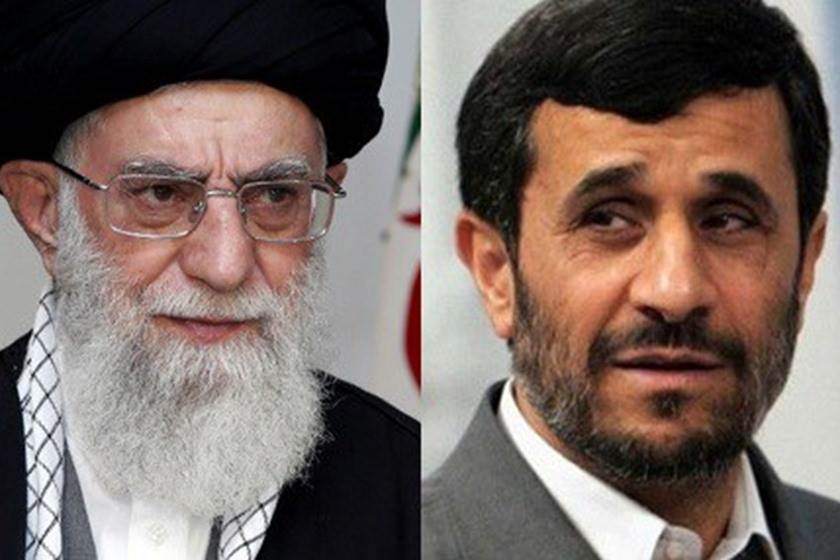
Former president Mahmoud Ahmadinejad, in an open letter to Iran’s leader Ali Khamenei, criticized the performance of the three branches, writing that ‘the public opinion, for any reason, accuses the judiciary officials, and their consecutive stances and denials have not only not improved the conditions, but have made it worse.’
Ahmadinejad urges ‘using the judiciary power in political, personal and family relations’ has made ‘reform in judiciary system’ impossible. He adds ‘on different excuses and with violent confrontations, the path to any criticisms, objections, and freedom of speech is blocked, while few groups and certain families try to monopolize the major power and positions.’
In recent months, Mahmoud Ahmadinejad has made criticisms of management of the country, judiciary branch, and ‘Larijani family’, which have provoked harsh reactions of judiciary officials.
BBC Persian
♦ Rouhani: People made up for government’s shortcomings in earthquake

On occasion of the first 100 days of the 12th government, Hassan Rouhani held a TV interview to go over his government performance, including its response to the recent earthquake in western Iran. Rouhani commented ‘I was closely involved in earthquakes of Rudbar, Manjil, and Bam, and this time relief and rescue operation by people and government was better, and people made up for government’s shortcomings.’
Rouhani added that about 2,700 people were saved from under the rubble from the time the quake hit until noon the day after, and more than 7,000 injured were taken to hospitals.
Fars news agency
♦ Karrar advanced tanks ready to deliver
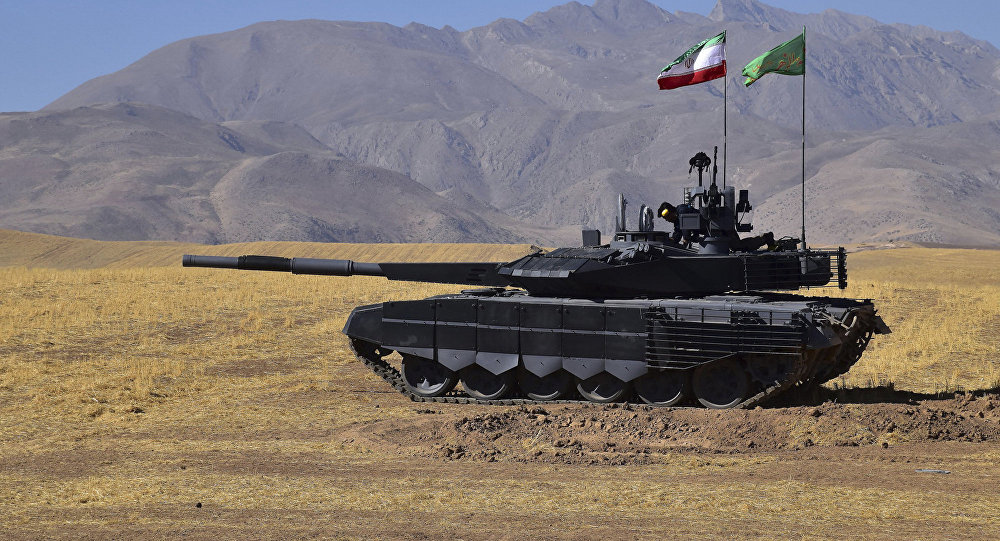
Defense Minister Brigadier-General Amir Hatami announced Karrar tanks are ready to be delivered to armed forces. All stages of designing and building this advanced tank were done in the armored industry of Bani Hashem in Dorood, affiliated with defense industry of defense ministry.
Tasnim news
♦ 26, the average age of addiction for women
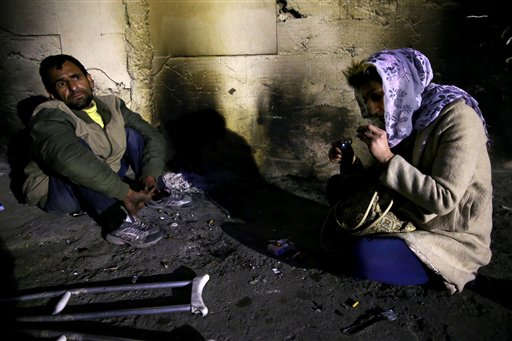
Hamid Sarafi, the manager of Research and Training Office of Headquarters of Fighting Addiction, said the average age of starting to use narcotic drugs in Iran is 24 for men and 26 for women. He added that the average rate of consumption of narcotic drugs is higher in provinces of Golestan, Chaharmahal and Bakhtiari, Kerman, Fars, North Khorasan, Markazi, Kermanshah, and Sistan and Baluchistan.
Arman Emrouz
♦ Iran, Russia sign memorandum of understanding for judiciary cooperation
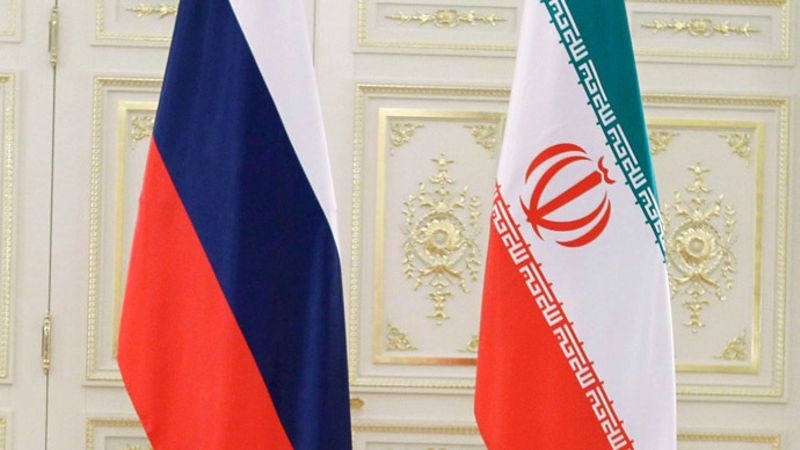
Iranian Attorney-General and his Russian counterpart signed a memorandum of understanding for cooperation, emphasizing the promotion of judiciary cooperation between the two countries. Mohammad Jafar Montazeri and Yuri Chaika met and emphasized mutual and international judiciary cooperation, discussing the existing problems in extraditing the convicts between the two countries. They also agreed to cooperate and exchange views with regard to fighting crimes with using new technology.
ISNA
♦ IRGC official threatens to increase missile range
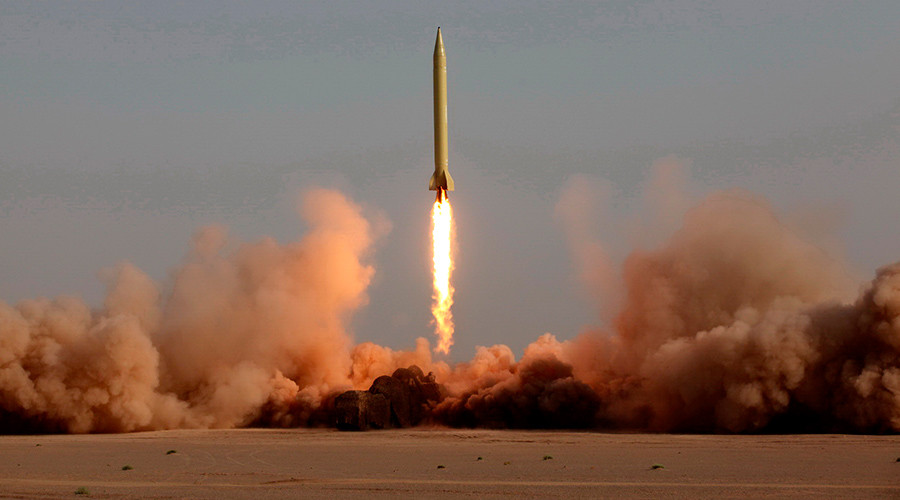
The successor to IRGC commander Brigadier-General Hossein Salami said Europeans must know that if they enter Iran’s privacy, this country will increase its missile range. Salami pointed out to Iran’s defense and missile power as guaranteeing the country’s security and authority, saying, ‘we will never negotiate in this regard because negotiating means we have surrendered to the enemy.’ He added that if Iran has kept the range of its missiles up to 2000 km, it is not due to technological restrictions, but because the missile range for Iran has a strategic logic.
Javan online
♦ Hamid Baghaei asked judiciary officials to resign
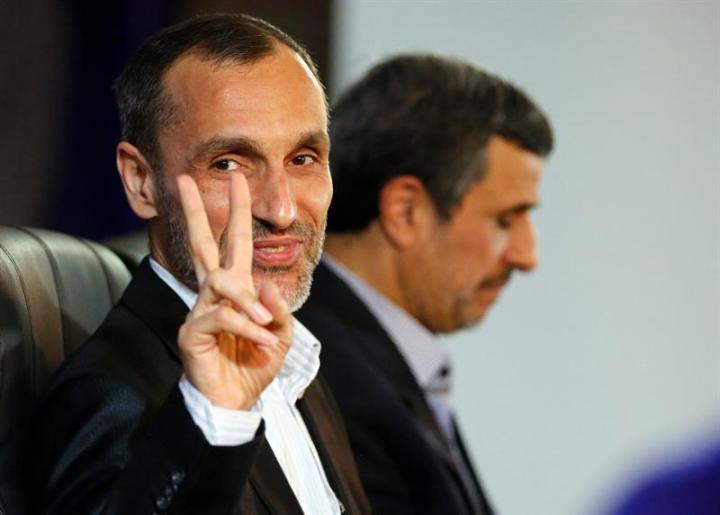
Along with the statement of former president Mahmoud Ahmadinejad against Tehran’s prosecutor about arresting manager of Bahar Government website, Hamid Baghaei, his former vice president in charge of executive affairs, reacted to Iran’s Attorney-General’s remarks, asking the judiciary officials to resign for not observing ‘law, sharia, and ethics’.
Iran’s Attorney-General Mohammad Jafar Montazeri had called Ahmadinejad’s presidency ‘a collection of lawlessness’, accusing Ahmadinejad of being a ‘liar’.
In response to Attorney-General, Hamid Baghaei wrote in his twitter, ‘we suggest to you that since you do not observe law, sharia, and ethic towards people, you ought to resign.’
Meanwhile, Mohsen Rafighdoost, close to ‘Islamic’ Coalition Party, had said in an interview with ILNA news agency that ‘Ahmadinejad will soon be taken care of’ and the judiciary branch is ‘completing his case.’
Radio Farda
♦ Ebrahim Raisi reacts to Baghaei’s claims about gold coins
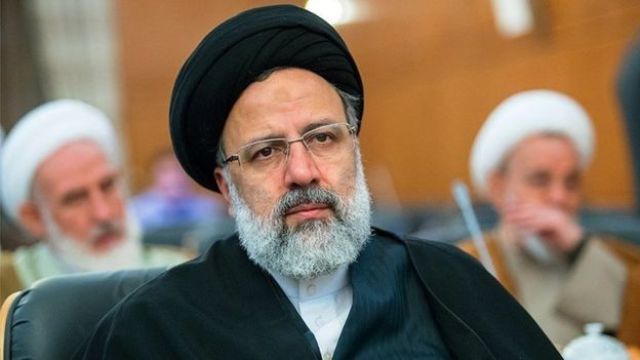
Following former vice president, Hamid Baghaei’s claim about former president Mahmoud Ahmadinejad giving gold coins to people present in a meeting including Ebrahim Raisi, the office of Raisi denied Baghaei’s claim. Before Raisi, Mesbahi Moghadam too had denied this issue.
Khabar online
♦ How did nuclear spy take away intelligence from confidential meetings?
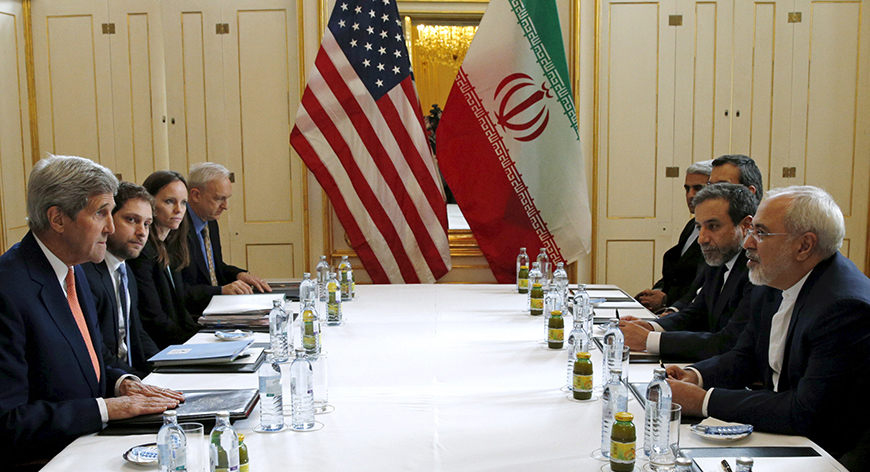
Abdul Rasoul Dori Isfahani was one of the members of nuclear negotiation team who was sentenced to imprisonment for 5 years for espionage. One of his charges was recording the content of confidential nuclear talks with his wristwatch, and sending it to one of Britain’s espionage devices.
Dori Isfahani used to cooperate with the U.S. Treasury Committee before the revolution. After the revolution, he was employed in Defense Ministry and was in charge of dealing with Iran’s demands from the U.S. He was later fired by Defense Ministry and went to Canada.
In 2013, Dori Isfahani was appointed as advisor to Governor of Central Bank Vlaiollah Seif. He was then assigned to the nuclear team for participating in nuclear talks. Dori Isfahani who has Canadian citizenship was arrested last year on a charge of the relationship with foreign intelligence services.
Asr Iran
♦ Expansion of Iran’s ‘spiritual influence’ in other countries
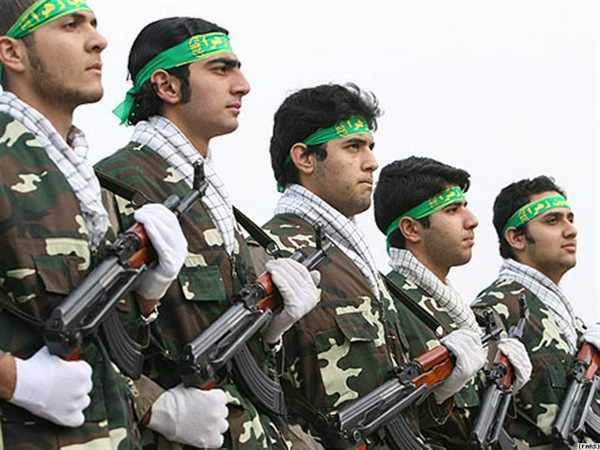
Deputy coordinator of IRGC in Fars Province said, ‘spiritual influence of Iran is expanding in other countries.’ Major Saeed Kooshki who was talking to a large gathering of Basijis in Shiraz added that existence and presence of Basij are what have disappointed ‘enemies of the Republic in putting their plots into effect’. Kooshki urged that existence and presence of Basij create security and peace in the society, saying even though ‘enemies of Iranian Revolution’ were after preventing the spiritual and cultural influence of Iran in other countries, this influence is developing and expanding.
Fars news agency
♦ Lawmaker: U.S. after getting more concessions from Iran
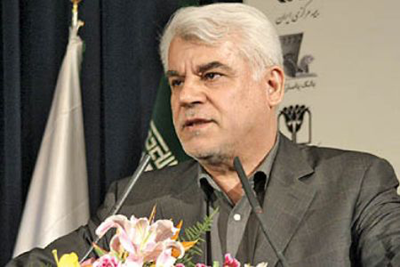
MP Mahmoud Bahmani, principlist member of Parliament’s Economic Commission, said that the U.S. by putting pressure on Iran is after getting more concessions, emphasizing that U.S. President Trump is after money, and given that the U.S. is the most indebted country in the world, U.S. president is after selling more weapons by creating tension in the world.
In reaction to efforts of some banks of China and other East Asian countries to impose new banking restrictions against Iranian tradesmen following the U.S. president’s trip to these countries, Bahmani said putting sanctions on Iran is nothing new, adding that Iran has to be after finding ways for reaching its goals despite sanctions.
ILNA
♦ Iran, Afghanistan emphasize expansion of mutual relations
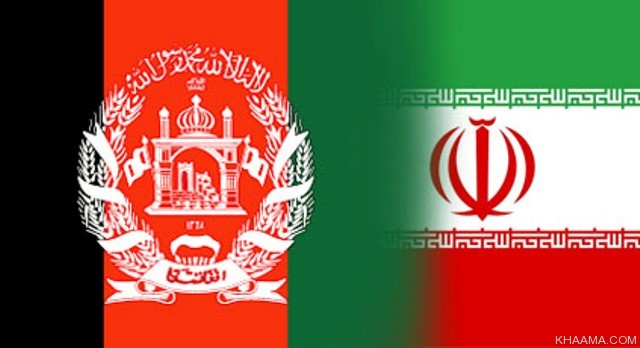
Deputy Chief Executive Officer of Afghanistan Mohammad Mohaqiq met Iran’s Foreign Minister Mohammad Javad Zarif. In this meeting, both sides emphasized on the expansion of mutual relation and cooperation in different fields. The necessity of more cooperation in fighting terrorism and expediting following up of issues in fivefold committees of Iran and Afghanistan were among other issues discussed.
ILNA
♦ Pakistan to make teaching Persian compulsory in schools
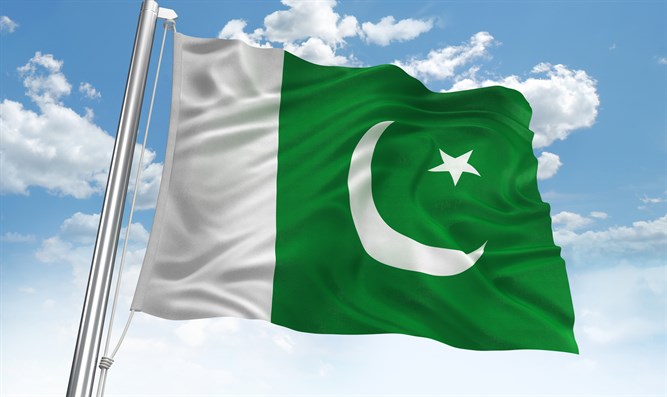
Pakistan’s Minister of State for Federal Education and Professional Training said Pakistan government intends to put the Persian language among the list of compulsory lessons in this country’s school. Baligh Rehman also emphasized the necessity of expanding scientific and academic cooperation, adding Tehran and Pakistan can have different programs for exchanging students in universities and in different fields. He stated that Pakistan would support dissertations and research programs about Iran.
IRNA
♦ Ahmadinejad is rumored to be under house arrest
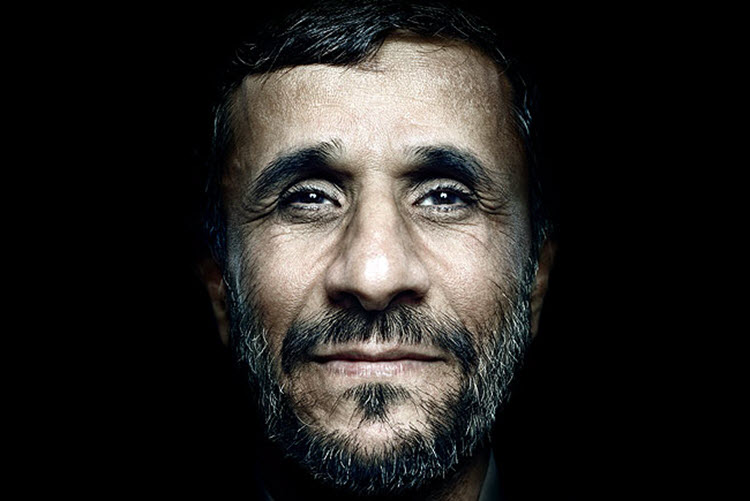
Some social networks, with circulating a letter attributed to Iran’s high-ranking officials, talk of former president Mahmoud Ahmadinejad being under house arrest. Meanwhile, no one of the officials or authorities has confirmed this story. Former president Ahmadinejad is under severe criticism of the sitting government, and his controversial remarks have lately created headlines.
Sedayiran
♦ Lawmaker: Iran against establishing EU office aiming at espionage
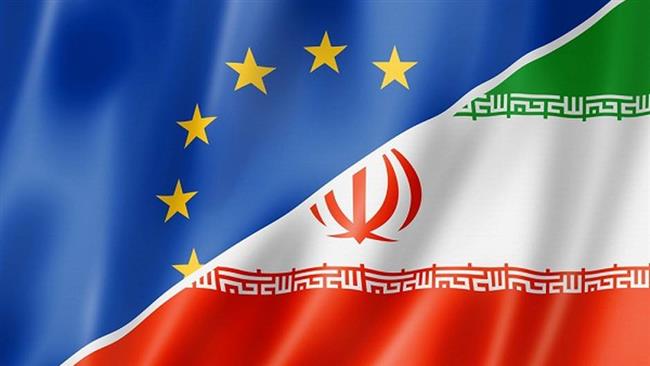
MP Hossein Naqavi Hosseini, the spokesperson of Parliament’s National Security and Foreign Policy, pointed out to speculations about establishing EU office in Tehran, saying that the Republic has nothing against it if this office is after enhancing Iran’s political relations, dialogues, and level of interactions with EU. But if this office aims at ‘bolstering the counter-revolutionaries, espionage, and sedition’, then Iran is against it. He underscored that sometimes existence of these offices in Tehran is an excuse for implementing political purposes of some ‘dominant countries’ which try to create sedition in the country.
Fars news agency
♦ Parliamentarian: Domestic violence against women is high

Head of Women’s Fraction in Parliament Parvaneh Salahshoori said currently the level of domestic violence against women is outrageous in Iranian society, and not enough attention is paid to this issue. Parvaneh Salahshoori who was taking to IRNA news agency on November 25, the international day of preventing violence against women, added domestic violence is less seen in the society, as women who go through such violence talk less about it in the society, and that is why many women are suffering from it.
IRNA
♦ 1173 applicants for medical abortion permits

Tehran Legal Medicine Organization announced that in first 6 months of this year, 1,173 people applied in centers of this organization in Tehran Province to get permits for medical abortions. In 643 cases, permits for medical abortions were issued by Tehran Legal Medicine Organization.
According to this report, the number of applicants shows 23% increase compared to the same period last year, in which 950 people had applied for medical abortion permits.
IRNA
♦ Zarif called for removing banking restrictions for implementing JCPOA
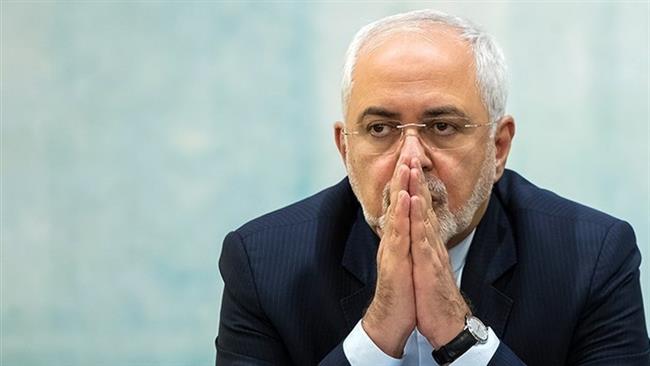
Iran Foreign Ministry Mohammad Javad Zarif, in meeting with Janusz Lewandoski, Chairman of Delegation for relations with Iran in European Parliament, asked for full implementation of the nuclear deal (JCPOA) by all parties, Iran’s enjoying the benefits of JCPOA, and removing banking restrictions for implementing it. Zarif called EU a significant partner for Iran. In this meeting, ways for expanding and deepening cooperation between Iran and Europe, regional developments, and JCPOA were discussed.
9sobh
♦ Culture Minister: Basij is Iran’s national capital in peace, defense!
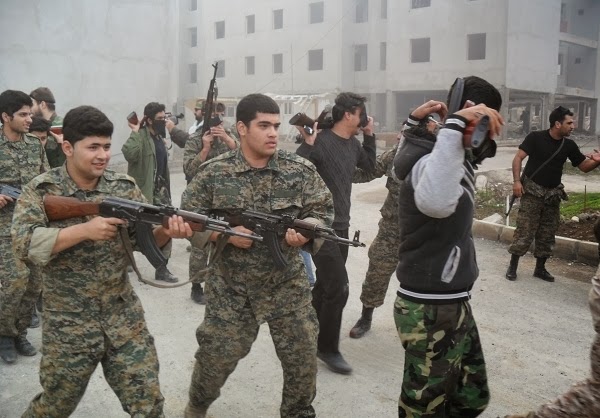
Abbas Salehi, Minister of Culture and Guidance, called Basij ‘national capital in peace and defense’ for the country, saying that this ‘enduring reserve’ should be kept cultural, popular and jihadi. He added Basij should not be crippled with politicization.
Pana
3700 air defense locations in Iran
Deputy air defense of Khatam Anbiya Base said air defense is spread in 3,700 locations in the country, but people do not notice it. Brigadier-General Abulfazl Sepehrirad added air defense is present all over the country, but due to requirements and given the existing analysis and threats, it exists more significantly in western and southern Iran.
Tasnim news
♦ New financial charges against Hamid Baghaei
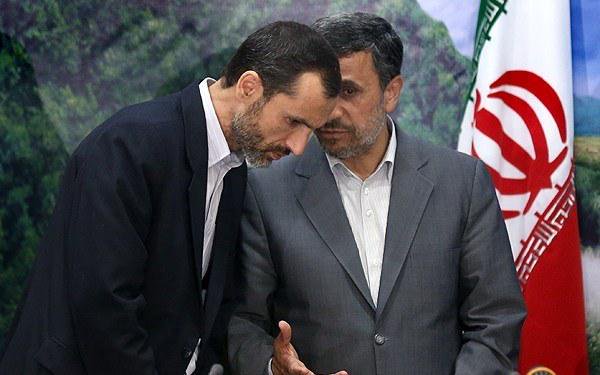
MP Mohammad Ali Poor-Moktar said with regards to former vice president Hamid Baghaei that ‘deviant current supporting former president Mahmoud Ahmadinejad still continues its deviant behaviors, but despite their interviews and slogans, Baghaei’s violations have been obviously proved.’ He added Baghaei must make transparent explanations about the 16 billion Tomans he had illegally withdrawn from the treasury, and deposited into a personal account of one of the founders of University of Iranians.
Ebtekar
♦ Trade Minister: Qatar proposes 5 times increase in trade with Iran

Iranian Minister of Industry, Mine, and Trade announced Qatar has proposed to increase trades between the two countries to $5 billion, adding that currently, this amount is less than $1 billion. Mohammad Shariatmadari said Iran’s export to Qatar in past 7 months reached $97 million approximately and contracts signed in technical and engineering sector is less than $1 billion. Shariatmadari urged that Qatar, given its particular conditions in the region, is more than any other time willing to develop its comprehensive relations with Iran.
IRNA
